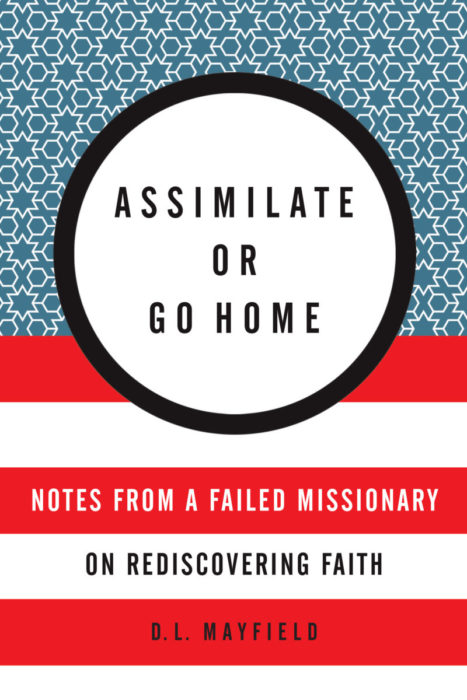More than eight years ago now, our new little family moved the 800 miles across country from the farmlands of the Midwest to the edge of Amish country, Pennsylvania.
At the time, I was mildly interested in reading Amish fiction. As I sat in our rental house with the windows open in early fall, reading while our baby girl napped, I could hear the clip-clop of horse hooves on the road. Occasionally, a buggy would roll by. I was giddy. It was like my books were coming to life right outside my door. I shopped where the Amish shopped. Sometimes, we spoke.
Fast forward and we now live in what I think is the heart of Amish country. The newness of this community has worn off and I rarely read Amish fiction anymore. But the lure of the real-life communities on which so much fiction is based is a lucrative business, one that supports our family, so I really can’t complain.
But I’m no longer awed by the buggies rolling past my house at all hours of the day, or the passel of Amish children walking to school. (Okay, maybe it is still a little bit interesting. I’m human, after all.)
Time and proximity have lessened the novelty of the Amish community.
These days, my thoughts are consumed by another people group.
—
Not long ago, I read a book about the world’s largest refugee camp as told through the eyes of nine of its residents. The camp is in Kenya, which is part of what drew my interest. I read whatever I can these days about Africa and refugees, and I will spend my last breath talking about these precious people with whom the world does not quite know what to do.
Once a week, most weeks, I sit in a church basement next to newly arrived refugees from a variety of countries. We listen to presentations on family finances and nutrition and diseases and I do my best to help them understand the English, even though I have no fluency in any other language. Sometimes, most times, it is messy and awkward and maybe of no help at all.
But it is my favorite time of the week because my world gets just a little bigger each time.
Some weeks, we take a walk through the city down to the indoor farmers’ market so they can see the kinds of things available to them: fruits, vegetables, meat, cheese, milk. For many of them, it is a somewhat recognizable environment.
I’m never quite sure what to do on these walks. I love keeping quiet and just taking in the city, but I often feel the need to fill the silence with questions I haven’t had a chance to ask yet: How long have you been here? Where did you live before this? How many in your family?
They are surface questions, for sure, but the answers say so much. Every refugee I meet identifies himself or herself by the country in which they were born, or their family’s country of origin, even if they have never lived there, even if it is a land they do not remember. It would be like if we told people we were English or Irish or German instead of American.
I want to listen and understand, but the noise of the streets and my failing hearing make understanding difficult.
On this most recent day, I walked with a Somali man whose English was better than I expected. We exchanged the initial information about families and kids. He expressed excitement and praise when he found out my husband is named “Phillip.” (This I want him to explain the next time, though my husband tells me it’s a nod to the Philip of the Bible who explained the Gospel to the Ethiopian eunuch.)
I tried to figure out where he had come from between here and Somalia. Most refugees do not come to the U.S. from their country of origin. My question was lost in translation. But as we walked, he told me of his family, some of whom are still in a refugee camp in Kenya.
“Ifo,” he says. “They are in Ifo.”
“I know Ifo,” I say, knowing that it is Kenya and I have heard of it somewhere.
Later, it hits me: Ifo is one of the camps I have recently read about in City of Thorns. I tell my husband that I walked with a man whose family is in the largest refugee camp in the world. And I pause because Ifo is no place to call “home.”
Let’s be honest: any refugee camp is no place to call “home.” Thousands of people crammed into a plot of land in a host country, maybe unwanted, relying on assistance from the U.N., given the bare minimum to survive. The camps are full of disease and danger, worse than any slum you could imagine. No one wants to be there, and yet, there they are. In the camps, life goes on for years. Decades. Babies are born. Couples wed. Family members die. Some find work. Others turn to drugs to numb the despair. Some dream of a better life, of a chance to resettle somewhere else. (The truth is only 1 percent of refugees resettle. One. Percent.)
I think about my own dreams and I wonder if I could hold on to them for years. Decades. Especially if I saw no evidence of my dream coming true.
I think of none of these things as I walk with this man who is speaking to me as quickly as his English will allow. Eventually, I realize, he is trying to teach me his language. So, I find myself leaning in a little and listening to the sounds that are similar to English yet altogether different. He teaches me to say, “How are you?” and “I am fine” in Somali, and though I know my attempts must sound ridiculous to him, he is effusive in his praise.
And I am oblivious to the people around me. We walk through the city laughing and repeating after each other, flanked by an older Somali man wearing a knit cap and a young man and woman, the latter fully covered from head to toe except for her face.
When we arrive at market, I point out my husband and my new friend walks over and hugs him like he’s an old friend. (My husband is not terribly surprised by these greetings.) After a short tour of the market, we wave good-bye, and I hope I will see him again next week.
More than that, though, I echo his hope for his family, stuck in the world’s largest refugee camp.
“If Allah wills,” he says, “they will come here.”
I do not call God, “Allah,” but I am also not offended by the name. Yes, I think. I will ask God for the same.
—
I am reading another book these days. This one is about a woman desperate to make a difference to the poor and the wanderers in her community but who finds her efforts falling terribly short of her goals. She calls herself a failed missionary, and she writes story after story about her work with a Somali population in the Pacific Northwest.
And as I sit in the basement room with a group of Somalis, as we walk the city, I think about the characters coming to life. I feel like I am in her story or her story is walking around with me.
Yet these are more than characters in a book. They are real-life people. Flesh and blood.
It is easy to read about these people or those over there, to think of them as a cause or a charity or a need we should support. I do this, too. Much harder to remember that the people we read about, the people whose lives we pity, are people just like us. They have families. They have skills. They smile and laugh and dream.
They have survived things we cannot begin to imagine.
And to walk with them is an honor.


